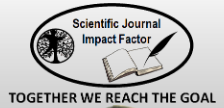The Divine Women in Women Talking: Restorative Imagination for a Divine Becoming
DOI:
https://doi.org/10.59136/lv.2023.1.1.101Keywords:
Divine Becoming, Luce Irigaray, Mennonite, Patriarchy, Restorative Imagination, Women’s Emancipation.Abstract
This paper will examine how Miriam Toews’ 2018 novel, Women Talking builds on its initial themes of women’s subjugation to men, their systematic oppression through religion, and their inability to reclaim their lives, to ultimately evolve into an account of women’s emancipation and divine becoming through the exercise of their restorative imagination. The novel spans two days during which eight women from the ultra-religious and patriarchal Mennonite community of Molotschna in Bolivia engage in several discussions pertaining to different aspects of their lives. These conversations very casually unfold the horror of unimaginable cruelty in the name of religion and unforgiving patriarchy as practiced within their closed community. Keeping this bleak setting in the background, Women Talking is also a tale of these women’s divine becoming, as propounded by Luce Irigaray in her essay, “Divine Women.” The resilience showed on part of these broken and abused women and the unprecedented bold decision to which they collectively arrive towards the end of the novel, is a demonstration of the courage and restorative imagination that they unknowingly harbored within themselves, the exercise of which results ultimately in their divine becoming
Downloads
Downloads
Published
Issue
Section
License

This work is licensed under a Creative Commons Attribution-NonCommercial 4.0 International License.




